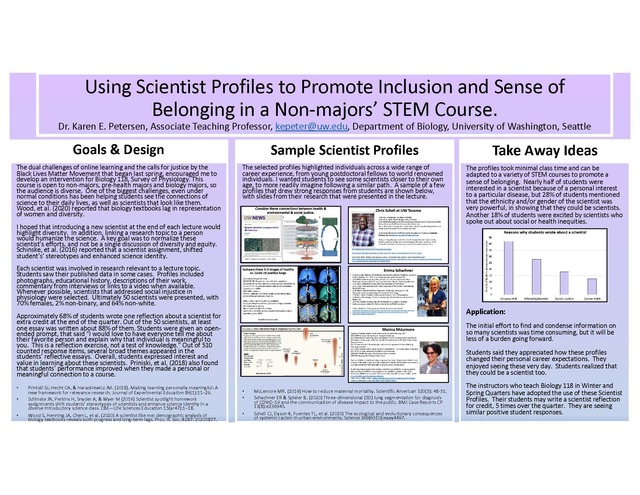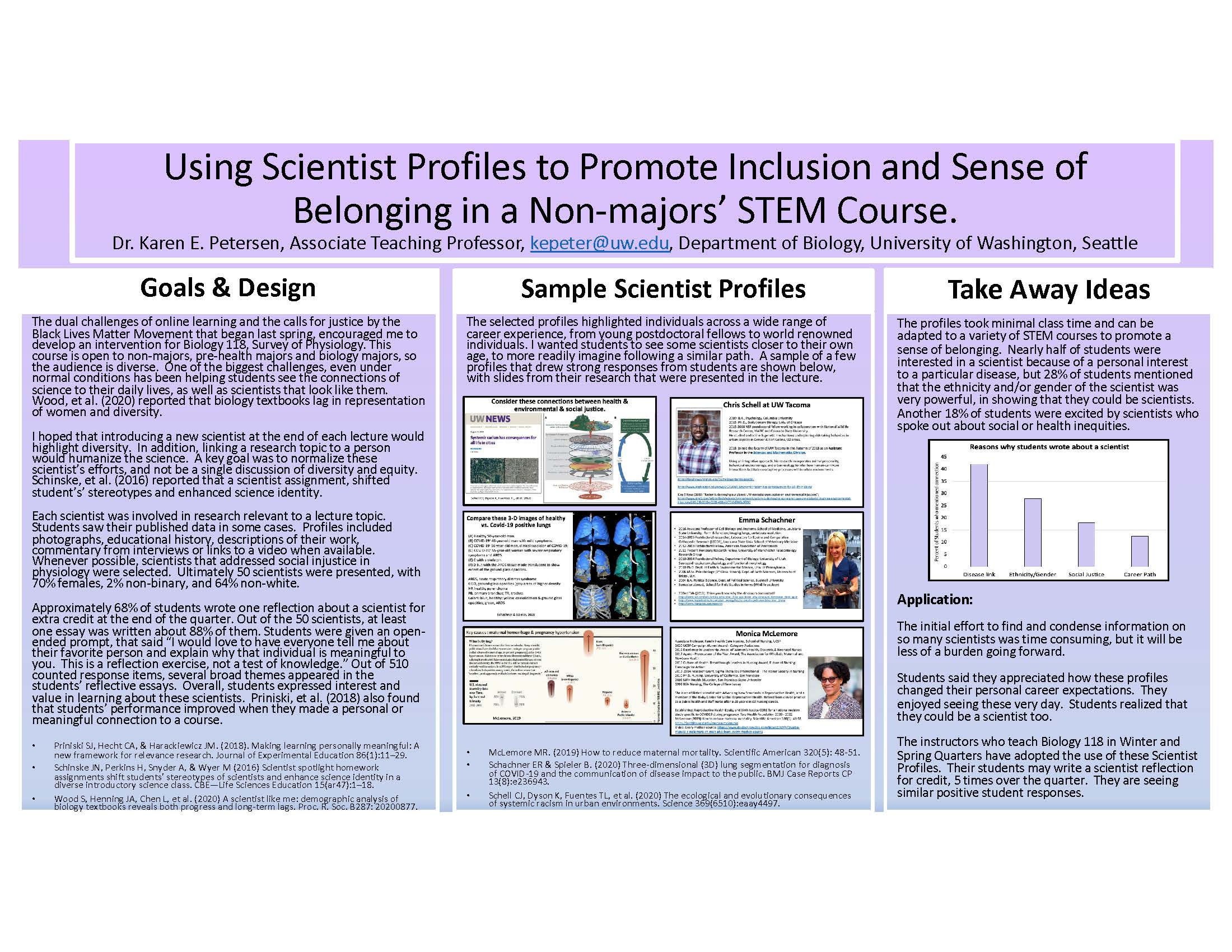Skip to main contentResource added 
I added a scientist profile at the end of each lecture. Schinske, et al. (2016) reported that a scientist “spotlight”, shifted students’ stereotypes and enhanced science identity. Each scientist researched a topic relevant to a lecture, and students saw their data in some cases. Profiles included photographs, educational history, descriptions of their work or link to a video. Scientists that addressed some of the social injustice issues in physiology was an important selection criterion. Profiles included young postdoctoral fellows, as well as world renowned individuals. Ultimately 50 scientists were presented, with 70% females, 2% non-binary, and 64% non-white.
An end of the quarter reflection asked students to write about their favorite scientist; nearly 68% of students completed this for extra credit. Students described the scientist’s research and said why this scientist was personally meaningful. Out of the 50 scientists, at least one essay was written about 88% of them. Students commented that 42% had a personal interest or connection to a disease topic, 28% said that a scientist’s ethnicity or gender made them a role model, and 18% mentioned that a social justice issue resonated with them. Overall, students expressed interest and value in learning about these scientists.
Priniski, et al. (2018) also found that students’ performance improved when they made a personal or meaningful connection to a course. My scientist profiles took minimal class time and can be adapted to a variety of STEM courses to promote a sense of belonging.
Scientist Profiles Promote Inclusion and Sense of Belonging in STEM

Full description
Video Presentation
Author:
Karen Petersen, Biology, UW SeattleAbstract:
The challenges of online learning and the calls for justice by the Black Lives Matter Movement, encouraged me to develop an intervention for Biology 118, Survey of Physiology, for non-majors. Wood, et al. (2020), reported that biology textbooks lag in representation of women and diversity. Worse still, physiology has a history of racist ideas that needed discussion.I added a scientist profile at the end of each lecture. Schinske, et al. (2016) reported that a scientist “spotlight”, shifted students’ stereotypes and enhanced science identity. Each scientist researched a topic relevant to a lecture, and students saw their data in some cases. Profiles included photographs, educational history, descriptions of their work or link to a video. Scientists that addressed some of the social injustice issues in physiology was an important selection criterion. Profiles included young postdoctoral fellows, as well as world renowned individuals. Ultimately 50 scientists were presented, with 70% females, 2% non-binary, and 64% non-white.
An end of the quarter reflection asked students to write about their favorite scientist; nearly 68% of students completed this for extra credit. Students described the scientist’s research and said why this scientist was personally meaningful. Out of the 50 scientists, at least one essay was written about 88% of them. Students commented that 42% had a personal interest or connection to a disease topic, 28% said that a scientist’s ethnicity or gender made them a role model, and 18% mentioned that a social justice issue resonated with them. Overall, students expressed interest and value in learning about these scientists.
Priniski, et al. (2018) also found that students’ performance improved when they made a personal or meaningful connection to a course. My scientist profiles took minimal class time and can be adapted to a variety of STEM courses to promote a sense of belonging.
Poster PDF
View a PDF version of the poster in Google Drive to enlarge the image or download a copy.
Comments
The presenter for this poster will be available to respond to comments during Poster Session 2 on April 20, 3:45-4:30 p.m.Comments
to view and add comments.
Annotations
No one has annotated a text with this resource yet.
- typeImage
- created on
- file formatjpeg
- file size554 kB
- publisherUniversity of Washington
- rights


